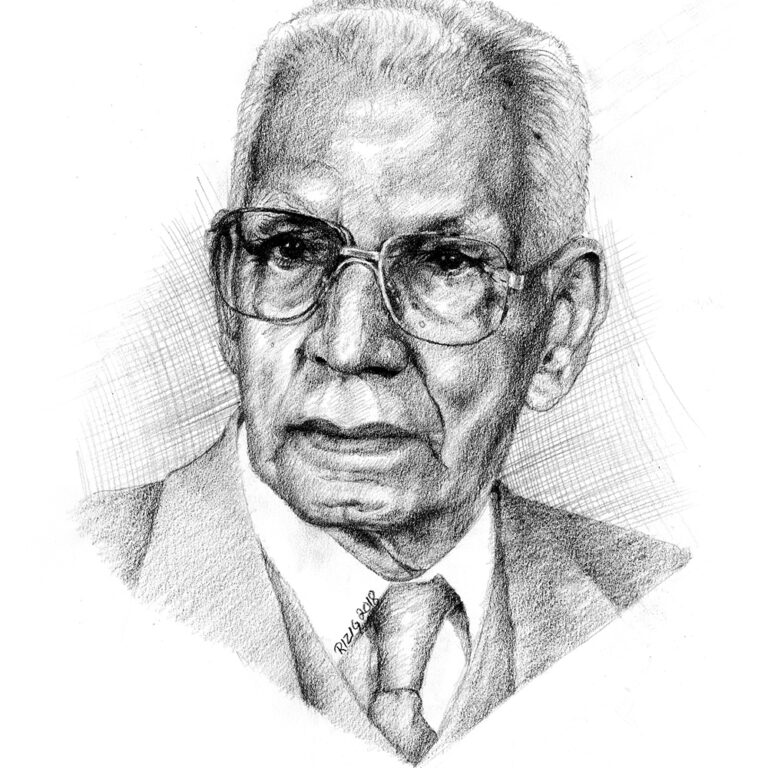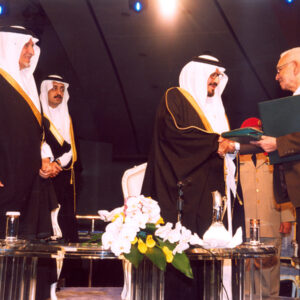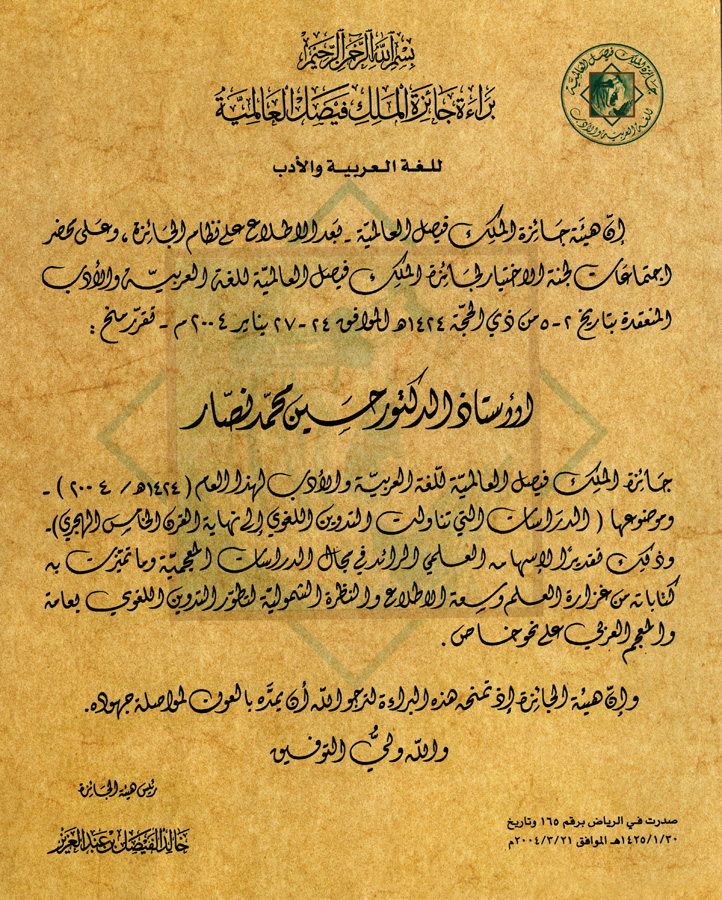

Professor Hussain M Nassar
King Faisal Prize in Arabic Language and Literature 2004 Laureate
Topic: "Preservation of Classical Arabic to the End of the 5th Century AH"
Language in its phonetic and semantic forms gave us literature, poetry and prose

Hussein Nassar was educated at Fuad Al-Awal University (Cairo University). After graduation, he pursued a distinguished career, spanning nearly half a century at the same University. He became a university professor in 1969, and was the Dean of the College of Arts and Director of the Arabic Manuscripts Institute and the Egyptian Academy of Arts.
In addition to his numerous scholarly articles, Professor Nassar published more than 50 books dealing with different genres of Arabic literature, language arts, history, and Islamic thought. His works include analyses and editions of ancient manuscripts, poem selections, studies of the language of the Holy Qur’an and translations (from English to Arabic) of several important texts, such as D.S. Margoliouth’s Lectures on Arabic Historians, B. Lewis’s Land of the Enchanters, Egyptian Short Stories from the Earliest Times to the Present Day; J. Horovitz’s The Earliest biographies of the Prophet and their authors, and three of Henry G. Farmer’s books: Sources of Arabic Music, History of Arabic Music and Music and Songs of the Arabian Nights.
His authoritative book (in Arabic): The Arabic Dictionary; its Evolution and Development is one of the hallmarks of modern Arabic lexicography. First published in 1956, and reprinted several times; this classic text continues to be a major reference for students and researchers in this field. It is, however, only one of several examples of Nassar’s erudition and scholarship.
Professor Nassar’s seminal contributions earned him one of the highest recognitions in Egypt, the State Award of Appreciation in 1986. His other honors include invited lectureships and membership of learned societies. He worked as a corresponding member of the Arabic Language Academies of Iraq and Syria.
This biography was written in the year the prize was awarded.
- In 2006, he was awarded Mubarak’s Prize for Literature.
- He authored many books including:
- Al-Nasekh Wa Al-Mansokh Fi Al-Quran Al-Kareem (Dar Al-Alam Al-Arabi), (2011).
- Al-Ebham Fi Al-Quran Wa Al-Eajaz Al-Adadi (Egypt Library), (2011).
- Professor Hussain Nassar passed away in Giza on 29/11/2017.


